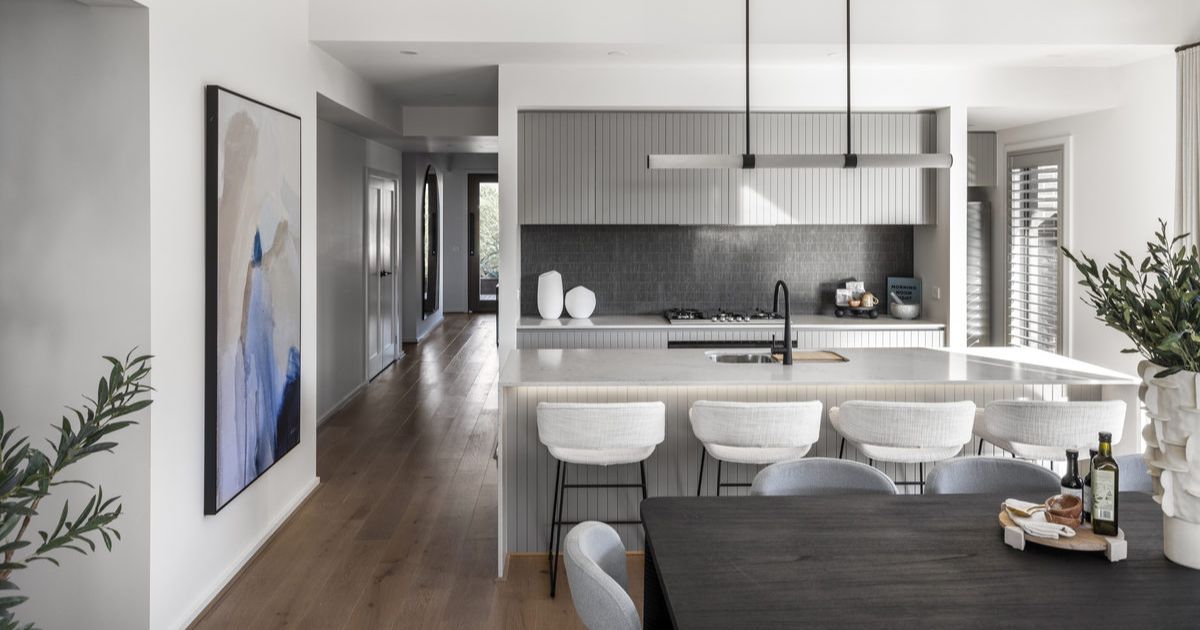Short-stay levy draws flak as housing vision unveiled

Victorian landlords won't be able to raise the rent for up to a year after asking a tenant to leave as part of planned changes to the states housing rules.
VICTORIAN holiday-makers will become the first in Australia to pay a tax on short stays booked with online platforms under a new plan to build eight hundred thousand homes over the next decade.
Premier Daniel Andrews unveiled a raft of landmark reforms last week as part of his Government’s long-awaited housing statement.
The changes were headlined by an Australian-first statewide consumer levy on short-term accommodation bookings with platforms like Airbnb and Stayz.
The Premier conceded the 7.5 per cent levy would not be universally popular but insisted it was modest.
“Some people will say it’s too high, some people will say it’s not high enough,” he said. “Ultimately, there is a place for short-stay.”
The consumer levy, to be imposed from 1 January 2025 once legislated, is expected to raise $70 million a year, with the extra cash funnelled into Homes Victoria to build and maintain social housing.
It will end the ability of local councils to set their own fees on short-stay providers, which boast more than 36,000 places across Victoria.
Airbnb Australia and New Zealand public policy head Michael Crosby hit out at the scope of the levy, declaring it has been set too high and will give hotels a free kick.
“A rate this high could have a negative impact on the appeal of Victoria as a tourism destination,” he said.
Stayz government and corporate affairs senior director Eacham Curry warned property owners could potentially circumvent it, leaving the government with nothing.
“The 7.5 per cent increase means owners need only remove themselves from listing on platforms to avoid paying the levy,” he said.
Under the 41-page housing statement, Melbourne’s 44 high-rise public housing towers will all be demolished and redeveloped by 2051.
The Premier described the towers, built between the 1950s and 1970s, as crumbling and out of date.
Construction timelines and costs have not been outlined, nor how tower residents will be housed during the redevelopments.
The project is expected to lift the number of residents across the sites from 10,000 to 30,000 and boost its social homes by 10 per cent.
As well, the Government plans to rezone surplus public land to build an estimated 9000 homes across 45 sites, with a target for 10 per cent of those to become affordable housing.
To cut application time frames from more than 12 months to four, developments worth more than $50 million in Melbourne and $15 million in regional Victoria will be assessed by the planning minister instead of municipalities.
The only condition is developers will have to set aside at least 10 per cent of the total homes as affordable housing to be eligible.
Developers who prioritise affordable housing will similarly be able to access low-interest loans and government guarantees under an investment partnership scheme.
Apartment design standards will be bolstered and penalties boosted for agents caught underquoting, including powers to strip commissions.
Victoria will outlaw prospective tenants from rent bidding, increase the minimum notice to vacate from 60 to 90 days’ time, and ban landlords from raising rents for a year after asking the previous tenant to vacate.
A new agency will be set up to resolve disputes between landlords and tenants, and limits placed on the information agents and landlords can keep on file and for how long.
The housing statement sets out a target to build up to 800,000 new homes over the next decade as Victoria grows towards a predicted population of 10.3 million by 2051, an increase of 3.5 million.
State Opposition Leader John Pesutto welcomed the cutting of red tape but branded the statement a “shameless con” on aspirational Victorians after nine years of inaction from the Andrews Government.
– AAP


















